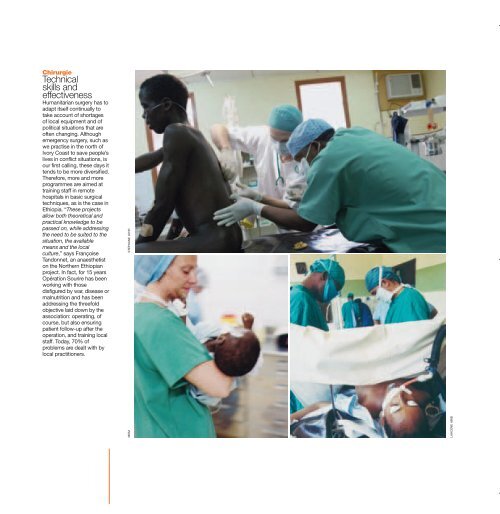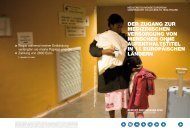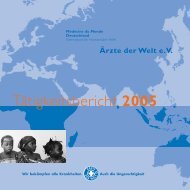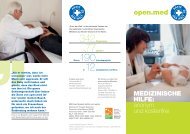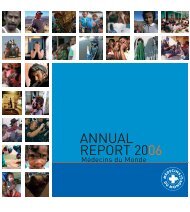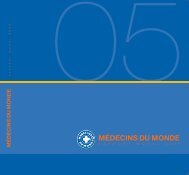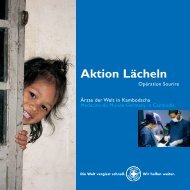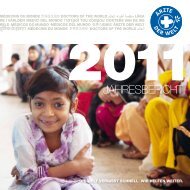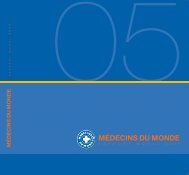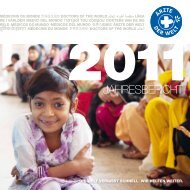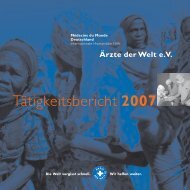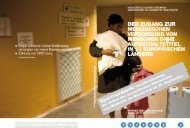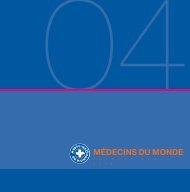MÉDECINS DU MONDE
MÉDECINS DU MONDE
MÉDECINS DU MONDE
You also want an ePaper? Increase the reach of your titles
YUMPU automatically turns print PDFs into web optimized ePapers that Google loves.
Chirurgie<br />
Technical<br />
skills and<br />
effectiveness<br />
Humanitarian surgery has to<br />
adapt itself continually to<br />
take account of shortages<br />
of local equipment and of<br />
political situations that are<br />
often changing. Although<br />
emergency surgery, such as<br />
we practise in the north of<br />
Ivory Coast to save people’s<br />
lives in conflict situations, is<br />
our first calling, these days it<br />
tends to be more diversified.<br />
Therefore, more and more<br />
programmes are aimed at<br />
training staff in remote<br />
hospitals in basic surgical<br />
techniques, as is the case in<br />
Ethiopia. “These projects<br />
allow both theoretical and<br />
practical knowledge to be<br />
passed on, while addressing<br />
the need to be suited to the<br />
situation, the available<br />
means and the local<br />
culture,” says Françoise<br />
Tandonnet, an anaesthetist<br />
on the Northern Ethiopian<br />
project. In fact, for 15 years<br />
Opération Sourire has been<br />
working with those<br />
disfigured by war, disease or<br />
malnutrition and has been<br />
addressing the threefold<br />
objective laid down by the<br />
association: operating, of<br />
course, but also ensuring<br />
patient follow-up after the<br />
operation, and training local<br />
staff. Today, 70% of<br />
problems are dealt with by<br />
local practitioners.<br />
MDM STÉPHANE LEHR<br />
LAHCÈNE ABIB


